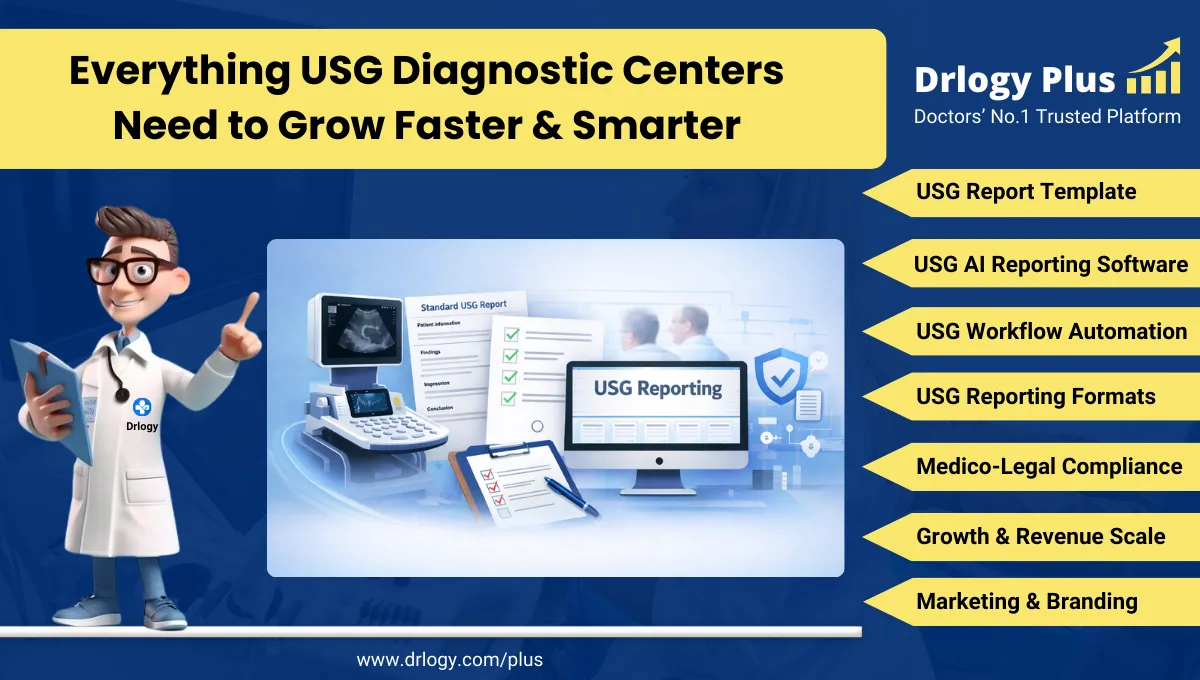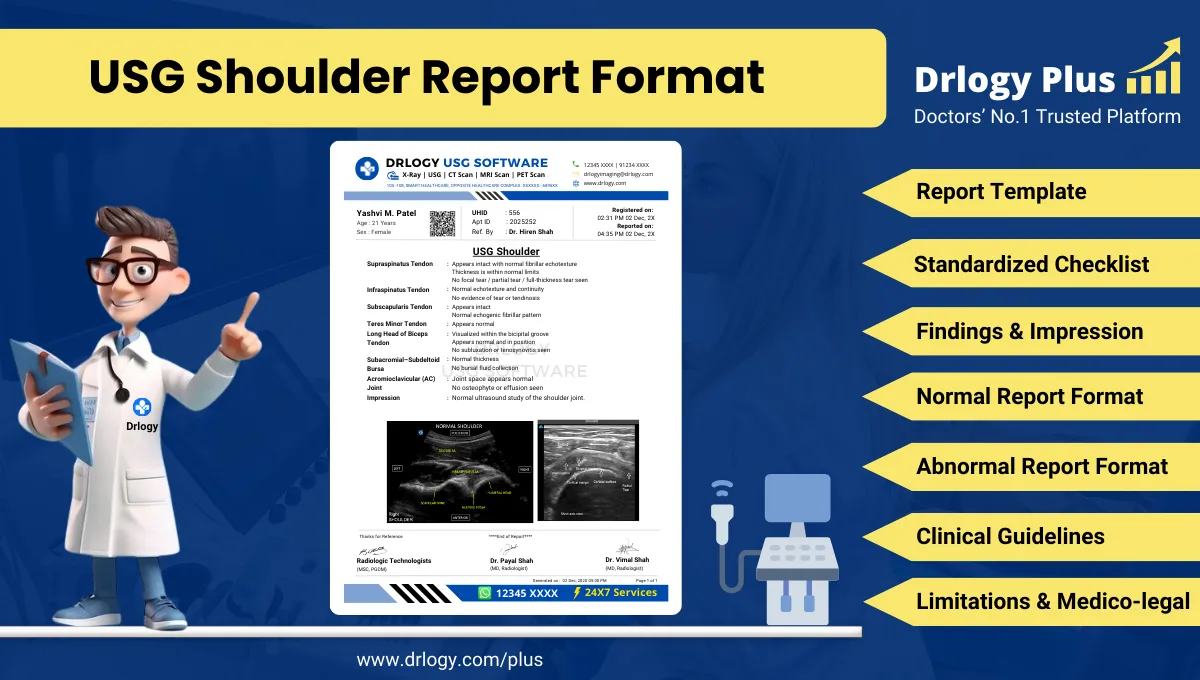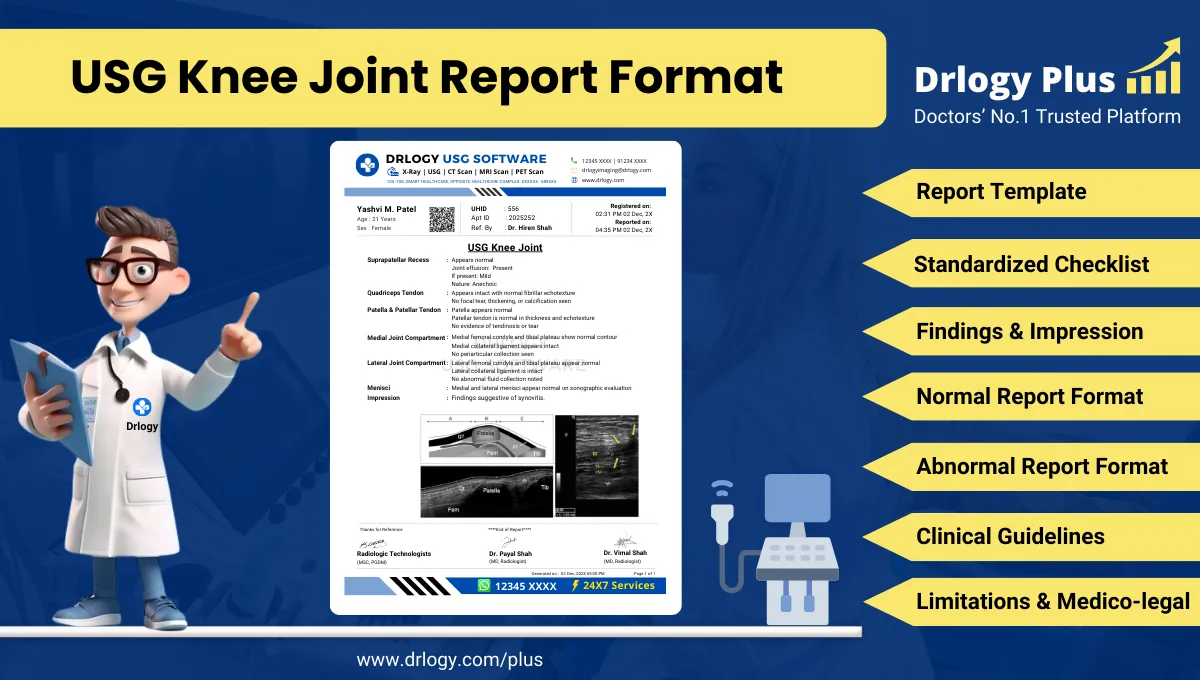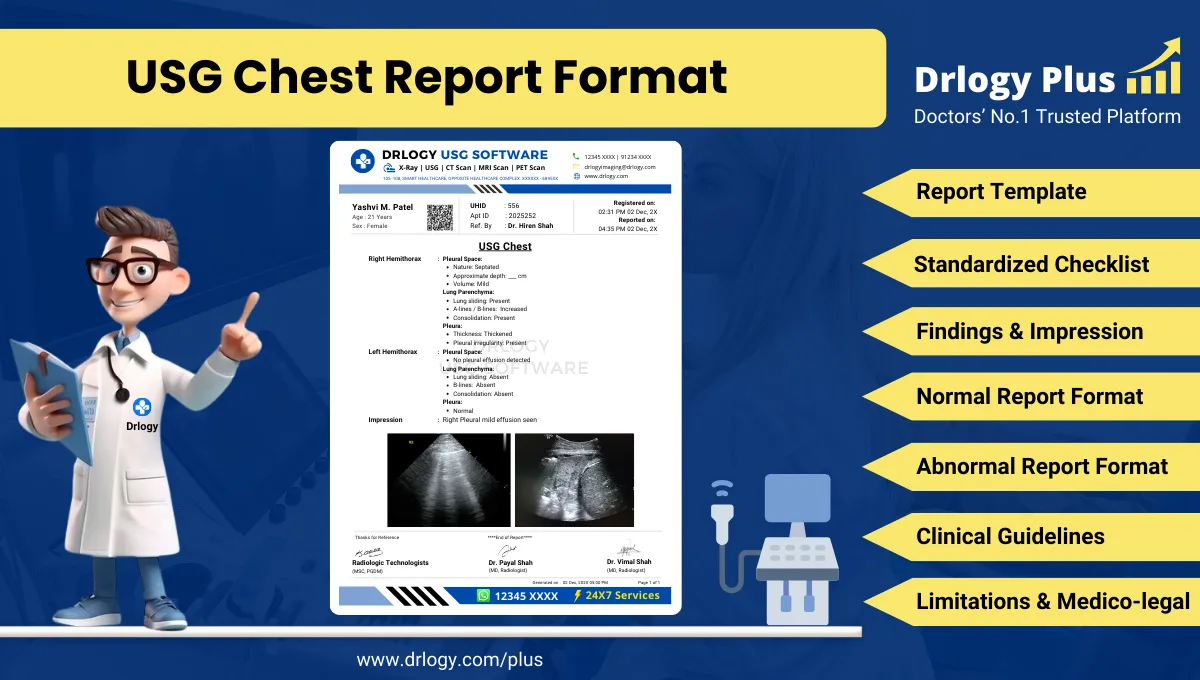

Drlogy
Healthcare organization
14 Electronic Medical Records (EMR) Software Features For Hospital
Implementing robust Electronic Medical Records (EMR) software is crucial for modern healthcare facilities, as it enhances efficiency, accuracy, and patient care quality.
Check:
Best Hospital Management Software For Electronic Medical Records (EMR)
A comprehensive EMR system streamlines various administrative and clinical tasks, ensuring seamless operations and improved patient outcomes. Here are 14 essential features that your EMR software must have to maximize its effectiveness.
Check:
14 Best EMR Software Features For Hospital
Here are the 14 Best EMR Software Features For Hospital.
1. Appointment Management
- Efficiently schedule and manage patient appointments to minimize no-shows and cancellations.
- Provide online booking options to enhance patient convenience.
- Send automated reminders and notifications to patients about upcoming appointments.
- Integrate with staff calendars to ensure seamless coordination and availability.
- Allow customization of appointment types and durations to fit different clinical needs.
2. Patient Reporting
- Generate detailed and customizable patient reports for various medical conditions and treatments.
- Provide insights into patient progress and treatment outcomes.
- Support regulatory reporting requirements and compliance standards.
- Offer real-time data visualization for better decision-making.
- Enable easy sharing of reports with patients and other healthcare providers.
3. Patient Portal
- Provide patients with secure access to their medical records and health information.
- Allow patients to view test results, treatment plans, and appointment schedules online.
- Enable secure communication between patients and healthcare providers.
- Offer features for online bill payment and appointment booking.
- Enhance patient engagement and satisfaction through convenient access to health information.
4. Patient Management
- Monitor patient vital signs and clinical parameters in real-time for timely interventions.
- Enable seamless tracking of patient care from admission to discharge.
- Provide alerts for abnormal readings or deteriorating conditions.
- Support integration with medical devices for automatic data capture.
- Facilitate remote monitoring and management of patients in critical care or home settings.
5. Patient Billing
- Generate accurate and itemized bills for patient services and treatments.
- Support multiple payment methods and insurance billing options.
- Ensure compliance with billing regulations and coding standards.
- Provide transparent billing statements to patients for clarity and trust.
- Integrate with accounting systems for efficient financial management and reconciliation.
6. Patient Follow-up
- Enable automated reminders for follow-up appointments and health check-ups.
- Monitor patient progress post-treatment through telemedicine or clinic visits.
- Collect patient feedback and satisfaction surveys to improve care quality.
- Coordinate with primary care providers to ensure continuity of care.
- Support long-term care plans and management of chronic diseases.
7. Patient Education
- Offer a repository of educational materials on various health topics and conditions.
- Ensure accessibility to educational resources for patients with different backgrounds and literacy levels.
- Provide interactive tools and multimedia content to enhance patient understanding.
- Enable healthcare providers to prescribe specific educational materials to patients.
- Track patient engagement with educational resources and gather feedback for continuous improvement.
8. Electronic Prescriptions
- Allow healthcare providers to electronically prescribe medications to patients.
- Reduce prescription errors through automated checks and alerts.
- Ensure secure and compliant transmission of prescription data to pharmacies.
- Provide features for prescription refills and renewals.
- Integrate with medication management systems for seamless coordination.
9. Patient Records
- Maintain comprehensive and secure electronic health records (EHR) for each patient.
- Ensure easy retrieval and updating of patient information.
- Enable interoperability for sharing records with other healthcare providers.
- Include features for recording medical history, diagnoses, treatments, and test results.
- Ensure data confidentiality and compliance with healthcare regulations.
10. Medication
- Track medication orders, dispensing, and administration accurately.
- Maintain up-to-date records of medication inventory and usage.
- Implement safety checks to prevent medication errors and adverse drug interactions.
- Integrate with pharmacy systems for automatic refill requests and medication tracking.
- Provide alerts and reminders for medication adherence and allergy warnings.
11. Reporting
- Generate customizable reports for various stakeholders, including clinicians and administrators.
- Provide insights into key performance indicators (KPIs) and clinical outcomes.
- Support regulatory and compliance reporting requirements.
- Offer real-time dashboards for monitoring hospital performance and decision-making.
- Include features for benchmarking and comparative analysis toentify areas for improvement.
12. Mobile App
- Offer a user-friendly mobile app for both healthcare providers and patients.
- Allow patients to access their medical records, appointment schedules, and test results on the go.
- Enable healthcare providers to manage tasks, communicate, and access patient information remotely.
- Provide secure login and data encryption features to ensure confidentiality and security.
- Ensure compatibility with various mobile devices and operating systems for wider accessibility.
13. Staff Management
- Manage staff schedules, shifts, and assignments efficiently to optimize workforce utilization.
- Track staff attendance, performance metrics, and professional development.
- Streamline communication and coordination among healthcare teams.
- Provide training modules and tools for performance evaluation and improvement.
- Integrate with payroll systems for accurate and timely salary processing.
14. Secure Messaging
- Implement robust data encryption and security protocols to protect patient information.
- Ensure compliance with healthcare regulations such as HIPAA and GDPR.
- Provide secure access controls and authentication mechanisms.
- Conduct regular security audits and vulnerability assessments.
- Implement disaster recovery and data backup solutions to prevent data loss.
Drlogy EMR Software Features Guide
Here's a full guide for 14 best EMR (Electronic Medical Record) software features for hospitals.
| 1. Appointment | 8. E-Prescriptions |
| 2. Patient Reporting | 9. Patient Records |
| 3. Patient Portal | 10. Medication |
| 4. Patient Management | 11. Data Security |
| 5. Patient Billing | 12. Mobile App |
| 6. Patient Followup | 13. Staff Management |
| 7. Patient Education | 14. Secure Messaging |
Summary
Overall, Incorporating these 14 essential features into your EMR software will significantly enhance healthcare efficiency, patient care, and overall operational effectiveness.
Check Drlogy EMR Software Features Guide for efficient inpatient management and enhanced patient care for your clinics and hospitals for patient management.




